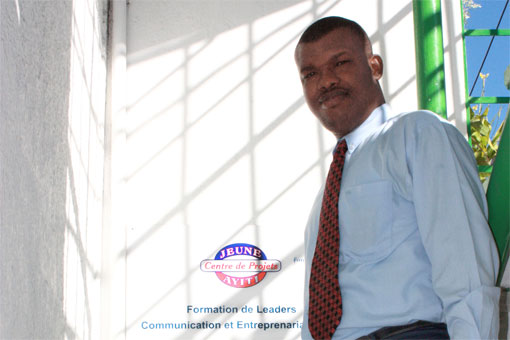Haiti is a young country. Our population has more than doubled in the three decades between 1962 and 2004 to 10 million. Sixty-five percent of Haitians are under 25, and 40 percent are younger than 15 years old. Only 10 percent are over 40. Young people clearly represent our country’s richest source of hope and progress for the future.
The challenges confronting our generation worldwide are daunting. The reduction of poverty and the eradication of disease are global priorities. So are expanding respect for human rights and developing preventive diplomacy to achieve world peace. But in our country, the poorest in the hemisphere, we have been focused on establishing the conditions necessary for sustainable social development.
Haiti’s low ranking on the global development index saddens those who know Haiti’s potential. In the aftermath of the economic crisis, our generation searched for the freedom to decide our own future. Our problem is that our representatives, once elected to power, quickly forget the fundamental needs of those they represent.
This clash between the isolation of our leaders from their followers and the aspirations of the majority has already caused too much bloodshed. Previous generations turned a blind eye to the systemic causes of our current political and social problems. This was aggravated by their persistent use of force and the tendency to co-opt and corrupt opponents with bribes and patronage—all designed to suppress change.
The 1987 constitution, in declaring the republic predominantly agricultural, was, in effect, a bet on the ability of Haiti to feed itself. But Haiti’s agricultural production has virtually disappeared. Our citizens have responded by trying to earn easy money in any way possible. Rampant illegal logging, for instance, has weakened the rich soil of a country that, as recently as the late 1980s, was the second-largest producer of coffee after Brazil and boasted the largest forest cover in the Caribbean. During the 1970s, Haiti was a flourishing tourist destination that produced 80 percent to 90 percent of its food needs. Today, it barely produces 45 percent.
In every country, education should represent the safest route to a stable society. Globalization has eliminated most barriers to achievement, and the advantage goes to those who are better prepared, better educated. But in Haiti, while close to 65 percent of young people start primary school, only 15 percent reach the secondary level. Worse yet, only about 1 percent make it to university. And once there, they find few opportunities for real learning. There are no laboratories, and the teaching is poor. The consequence is widespread unemployment, even among university graduates…
Editors Note
This essay was jointly produced by 10 young members of Fondation Espoir and Samuel Bernard, project director. As we were going to press, the Haiti earthquake struck. Samuel encouraged us to publish this essay—even though we were unable to find news of the whereabouts of all the authors—as a symbol of young Haitians’ hopes for their country. Our thoughts and prayers are with them.
How to support relief efforts in Haiti.





